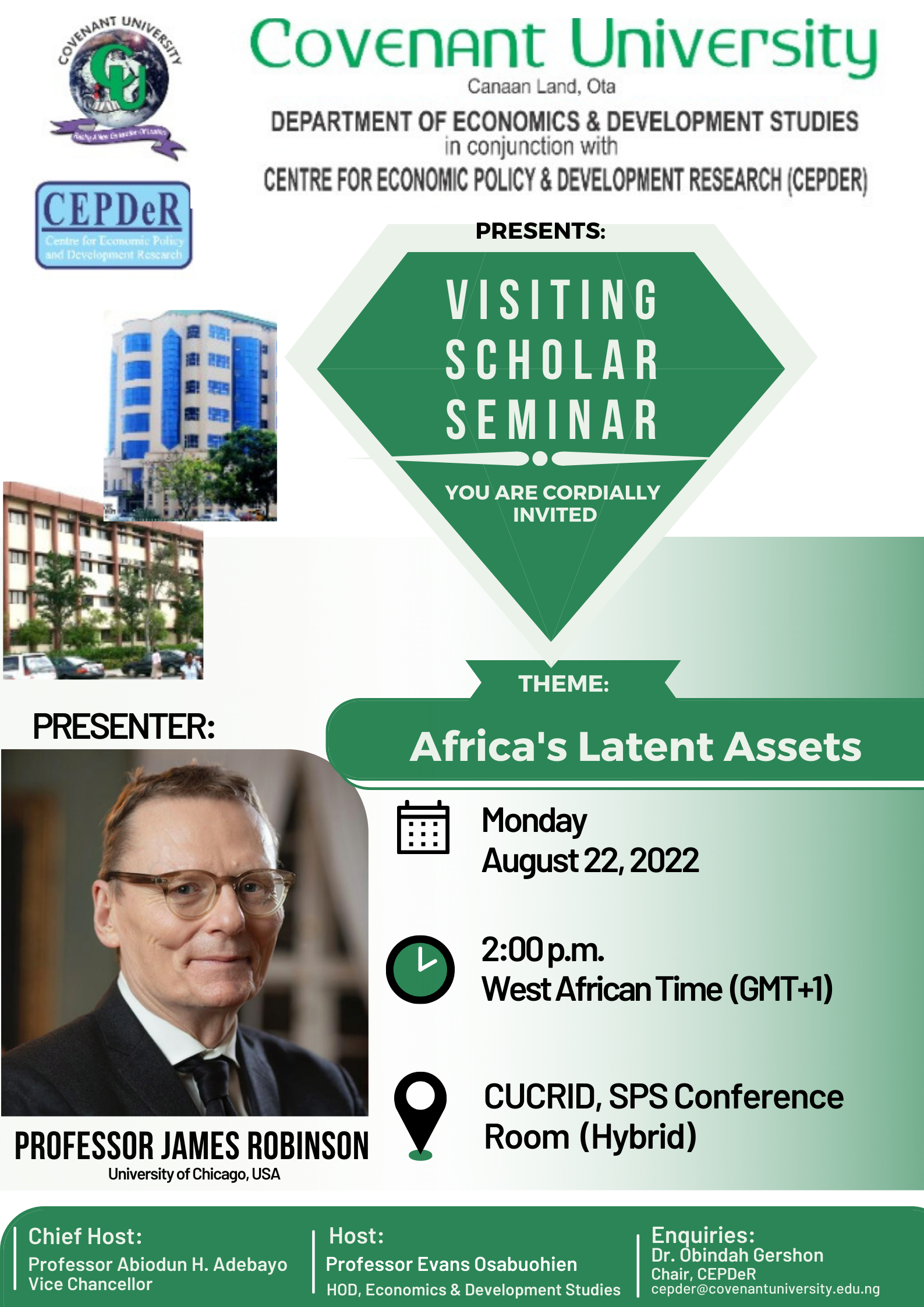Visiting Scholar Seminar
The Centre for Economic Policy and Development Research (CEPDeR) in conjunction with the Department of Economics and Development Studies, Covenant University, Ota, Nigeria, is hosting an international visiting scholar, Prof. James Robinson.
Prof James Robinson is visiting the Department of Economics and Development Studies, Covenant University for a week’s research stay during which he will be making a presentation on his latest research about Africa. The research provides a conceptual framework and empirical evidence that show how the nature of African society has led to three sets of unrecognized “latent assets.” First, success in African society is talent-driven and Africa has experienced high levels of perceived and actual social mobility. A society where talented individuals rise to the top and optimism prevails is an excellent basis for entrepreneurship and innovation. Second, Africans, like westerners who built the world’s most successful effective states, are highly sceptical of authority and attuned to the abuse of power. Third, Africa is “cosmopolitan.” Africans are the most multilingual people in the world, have high levels of religious tolerance, and are welcoming to strangers. Attend the seminar to be part of this discourse.
The seminar is scheduled to be a hybrid event and the details are stated below.
Theme: Africa’s Latent Assets
Date: August 22, 2022
Time: 2:00 PM (GMT +1)
Venue: School of Postgraduate Studies conference room, CUCRID Building, Covenant University & VIRTUAL
Please note that registration for this event is FREE. Click Here to register.
Read about the presenter below.

Prof James Robinson is an economist and political scientist. He has conducted influential research in the field of political and economic development and the relationships between political power and institutions and prosperity. Robinson has a particular interest in Latin America, where he has taught every summer for over 25 years at the University of the Andes in Bogotá, Colombia, and in sub-Saharan Africa.
Prof James Robinson has conducted fieldwork and collected data in Bolivia, Colombia, Haiti, the Democratic Republic of the Congo, Nigeria and Sierra Leone. He has published three books co-authored with Daron Acemoglu, an Institute Professor of Economics at MIT. The first, Economic Origins of Dictatorship and Democracy, proposed a theory of the emergence of and stability of democracy and dictatorship. Their second book Why Nations Fail: The Origins of Power, Prosperity, and Poverty (translated into 41 languages since its publication in 2012), pulled together much of their joint research on comparative development and proposed a theory of why some countries have flourished economically while others have fallen into poverty.
Their most recent book, The Narrow Corridor: States, Society and the Fate of Liberty, examines the incessant and inevitable struggle between states and society and gives an account of the deep historical processes that have shaped the modern world.

